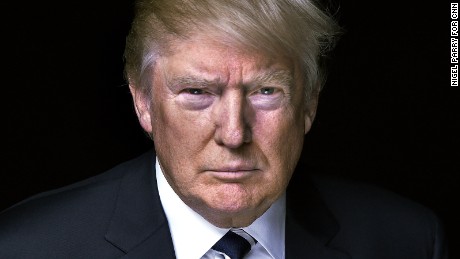 |
| He lied. Did American democracy die? |
Saying he had “no problem with somebody being really, really wealthy,” Reid sat up in his chair a bit before stirring the pot further. A month or so ago, he said, a person who had invested with Bain Capital called his office. “Harry, he didn’t pay any taxes for 10 years,” Reid recounted the person as saying. “He didn’t pay taxes for 10 years! Now, do I know that that’s true? Well, I’m not certain,” said Reid. “But obviously he can’t release those tax returns. How would it look?I wrote at the time that "Reid’s allegations look and smell a lot like bullcrap."
Why? Because there’s absolutely no reason to believe that Reid is telling the truth. He’s offered no witnesses and no proof of his claims, only a “somebody told me” statement that wouldn’t get within a million miles of passing muster in a court of law. And when challenged to present his evidence, his response is that Romney can prove Reid’s allegations wrong—by releasing his tax forms. Politically clever? Yes. Distasteful? It absolutely should be.It turned out I was right. Reid later admitted lying, but said he had no regrets: "Romney didn't win, did he?"
Fast forward to the fall of 2016. Trump versus Clinton. Her emails have been hacked; Trump has asked the Russians to release them to the media. It's all very suspicious. And Harry Reid, serving out his final days in the Senate, makes his move. He writes an angry letter to James Comey.
In my communications with you and other top officials in the national security community, it has become clear that you possess explosive information about close ties and coordination between Donald Trump, his top advisors, and the Russian government — a foreign interest openly hostile to the United States, which Trump praises at every opportunity. The public has a right to know this information. I wrote to you months ago calling for this information to be released to the public. There is no danger to American interests from releasing it. And yet, you continue to resist calls to inform the public of this critical information.Here's the thing: Reid was right! He was telling the truth! We found out later that Republicans had warned President Obama they'd accuse him of politicizing intelligence if he went public with this — and Obama, probably figuring Clinton would win anyway, decided to keep his mouth shut. Reid's letter to Comey, when made public, represented one of the best possible chances to get this issue fixed firmly in the minds of the American voters. Only ... Reid's accusation was treated like so much bullshit. Here's the Washington Post:
Reid is saying that he has been told the FBI has evidence of possible collusion between the Trump campaign and the Russian government. And he's not just saying this information came from mysterious and unnamed national security officials; he's saying Comey himself has left him with this impression. But there is no public evidence to support Reid's claim of actual "coordination" between the Trump campaign and the Russian government. And were that to be the case, it would be a scandal of epic proportions. Asked what evidence exists of such a connection, Reid spokesman Adam Jentleson cited classified briefings. "There have been classified briefings on this topic," Jentleson said. "That is all I can say." Asked whether the letter means Comey has shared such information directly with Reid, Jentleson said, "Refer you to the language in the letter." This is the political equivalent of Reid lighting a match, dropping it on a dry ground and walking away.The Post then mentioned Reid's false allegation against Romney. And it included this old quote from Reid:
Is there a line he wouldn’t cross when it comes to political warfare? “I don’t know what that line would be,” [Reid] said.It was, in retrospect, a missed opportunity. In 2012, when Reid made his first, pretty clearly bogus charges, there were no end of defenders. Why? Because, I was told, Romney hadn't released his tax returns so who was to say Reid was wrong? And in any case, the other guys fight dirty so why shouldn't we? We're tired of always being the weak ones, right?
The problem being: When Reid's credibility mattered most, when he could've used some "trust me" to help steer the nation on a different course, he'd spent it all on a crappy lie he probably didn't even need to make in order for Obama to win. Going low, politically, has its short-term rewards. It can be justified on that basis. But who wishes Americans had paid more attention to Harry Reid last fall? A lot of the same people who lauded his earlier lie.
Hey: Politics ain't beanbag. It's never going to be as clean as I like it. But there are costs to wallowing in the dirt, and they're not just moral prissyness. They matter. We're all living with how they matter now.





